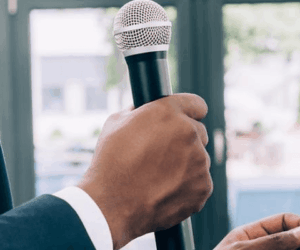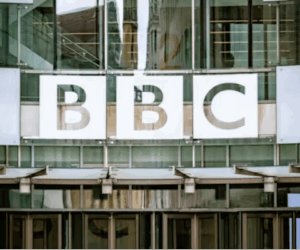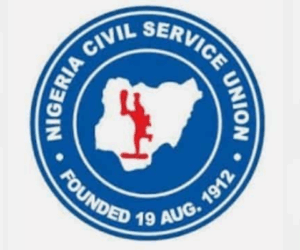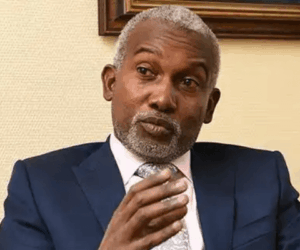Igbo-speaking people of Nigeria are far beyond the south-east geographical boundaries, but their unity seems to be mirage. Now, a new search seems to resume, rather in a most unlikely place, Okpanam in Delta State, the hometome of one of the greatest names in the Nigerian Civil War folklore.
Few weeks back, talks went from whispers to chants, that all those who speak Igbo language were to gather at Okpanam. Before people could dismisss it as another ruse, the list of guests that had endorsed the conference began to confound the doubters. The event later took place with fanfare, a kind of nostalgic recollection of people who seem truly hungry to to embrace their oneness and unity. It took place for two whole days, and guests seemed eager to stay longer.
The organizers were unianimous in demanding for greater unity of all Igbos in Nigeria. They also demanded for what they termed equitable distribution of infrastructure or more federal projects.
The group also lent their full support for the quest for Anioma State for the sake of equity and justice to the Igbo speaking group in Nigeria.

Their position was endorsed Kingsley Onyenwemmadu Kainebi, President; Ofochi Benjamin Atagana, Secretary/Legal Adviser; and Cosmas Chikeobi Agada, Chairman Local Organizing Committee (LOC)for the Igbo Unification Movement and ‘Ndi Na Asu Bia’ Socio-Cultural Organization.
Many thought the organisers would beat about the bush or pander to denial of who they were, but they came out strongly to hammer much on unity of Igbo-speaking peoples down to the coasts of Nigeria. They emphatically condemned those they described as entities and circles that either sponsor or permit themselves as instruments of Igbo division, dismemberment, and land-locking. Simply put, they condemned those who share all cultural affinities of language, names, mannerisms, culture, food patterns, features, but still boldly say they were not of Igbo stock, not minding whether non-Igbos believe them or not.
The communique expressed pride that unlike many other nationalities that can’t understand one another, “Igbo dialects are close, mutually intelligible, and facilitating easy and smooth Igbo interactions”.
The leaders greatly praised Ned Nwoko, a senator, for what they termed his unmatched efforts to have the Anioma State created.
According to the communique, the Igbo youths thanked President Bola Ahmed Tinubu for the perceived gradual improvements in security nationwide, but insisted that a lot still needed to be done.
The Igbo leaders urged the President to immediately lift what they claimed to be ‘The economic blockade unfairly imposed on the Igbo almost 60 years ago, which closed the main Igbo coastal ports of Port Harcourt, Bonny, and Opobo”. They also urged him to dredge, modernize, and functionally reopen those coastal ports to re-trigger a pole of development in the East, with spillover effects to the Middle Belt and down to Lake Chad.
Thought the presidency seemed to react by publishing what they termed a national distribution of infrastructural facilities and placed the South-East on advantage above few other zones, something that has generated controversy as it is being escribed by many Nigerians as laughable. The presidency did not publish geographical distribution of appointments in a country where government officials cart everything to their homes.
In the preamble, the organisers said Igbo youths of various backgrounds from all the 13 contiguous states of their major or minor indigeneity, under the umbrella of the ‘Igbo Unification Movement’, in collaboration with ‘Ndi Na Asu Bia’ sociocultural organization, met on Friday and Saturday, 29th and 30th August 2025, at the great historical city of Okpanam in Asaba metropolis, the capital of Nigeria’s Delta State.
The communique stated that they were joined by several invitees such as Sheriff Oborevwori (the Governor of Delta State, represented by Johnson Erijo, his Chief of Staff); Nwoko (champion of the Anioma State movement); Keynote Speakers, Uzodinma Nwala (Emeritus Professor); and other professors such as Obasi Igwe, Chidi Osuagwu, Chinedu Innocent Ewonye, (Paul O. Opone); and Nwachukwu Anakwenze, a monarch and head of the World Igbo Congress.

The named enthusiastic delegations of Igbo indigenous communities in Abia, Akwa Ibom, Anambra, Bayelsa, Benue, Cross River, Delta, Ebonyi, Edo, Enugu, Imo, Kogi, Rivers States; all parts of the Igbo society from Anioma to Etche, Igbanke, Igweocha (Port Harcourt), Ikwerre, Ndoki, Ngwa, Opobo, Ubani (Bonny), Ukwuani, Waawa, and many others, as well as significant elements from the diaspora, who they said were in full attendance.
The communique stated thus: “Whereas the State Governor wished the gathering well in peacefully pursuing their lawful concerns; the distinguished Nwoko re-emphasized the noble objectives in the quest for the creation of an Anioma State; while Nwala and five other guest speakers were of one mind that Igbo unity was an indispensable prerequisite for a prospective restructuring of Nigeria in terms of ethnic nationalities or groupings of consenting ethnic nationalities, while Anioma State remains the most logical, reasonable, and strategic equalization State for the Igbo nation.
“The groups expressed enormous gratitude to the Anioma branch of the Igbo Unification Movement, and Ndi Na Asu Bia sociocultural organization, for their enormous hospitality, the Jace-Darl Hotel & Suites, Okpanam, for their high-level efficiency, and to all participants for the enthusiasm shown and commitments demonstrated for renewed Igbo renaissance and unity in liaison with other nationalities in the search for a new and equitable national order in Nigeria.”
They said the Igbo Unification Movement, Ndi Na Asu Bia, and all participants, equally expressed profound gratitude to Obi of Obomkpa, Onyemaechi Josiah Kanyinaga 1, who chaired the proceedings, Michael Mbanefo Ogbolu (monarch), the Ugoani of Okpanam, that was the traditional host.
Nwala point the way for Igbo renaissance:
The professor-emeritus took time to deliver a model work on the future of the Igbos and how it may depend on how much they succeed in evolving a strong political synergy among the various patriotic forces in Alaigbo.
Nwala said evolving such a strong political synergy would require the support of the political class and leadership, the business class, the youth and the women.
He said: “What is more we need the critical role of the committed educated class – the intelligentsia, who possess the necessary exposure, training and capacity to monitor developments in the society and the world, collect and collate the relevant data, do the necessary analysis and draw up the appropriate conclusions.
“On the basis of these, they would formulate the guiding policies and modalities for their implementation to meet the political and economic challenges faced by the Igbo Nation.”
In his conclusion, the researcher submitted that the Igbo nation was once acknowledged to be one of the 10 great and dominant nations of the world; the genius, industry, courage and drive of her citizens recognized and respected all over the world; a people highly adaptable and self-reliant, a nation of warriors, humble but shrewd and aggressive commercial class, highly devoted clerical class.
He said they are accepted all over the world as an inventive people with literati whose creativity and intellectual accomplishments continue to dazzle the world; a nation that gave the world Azikiwe for world politics, Achebe for literature, Emeagwali, Chike Obi and Animalu for Science, Uzodinma Nwala for Philosophy. “The nation still commands within her ranks men and women who can collectively pull her and her citizens out of the present historical predicament.”
The foundation of all this, he said, is of course the fostering of collective solidarity and unity of purpose; a role that only Ohanaeze Ndigbo can effectively play. “Unfortunately, Ohanaeze has been the major target of those who wish to disorganize Ndigbo, through their internal agents and self-serving agents within Alaigbo, the enemy has taken control of the nerve-centre of Igbo leadership and resistance. They have thus rendered Ohanaeze Ndigbo moribund.
“The solution to this challenge lies in the sustenance of major pan-Igbo intellectual and social organizations; The Alaigbo Development Foundation has played this role very ably and strategically, ADF has stoutly defended Igbo intellectual, military and political leaders who have been the target of the enemies of Ndigbo. These include General Azubuike Ihejirika, Group Captain Emmanuel Ihenacho, Prof Barth Nnaji, Mr Peter Obi, Chief Innocent Chukwuma, etc/”.
He said Igbo marginalization is a realty but wondered if the elephant can be marginalized in the bush, and referred to the statement by the late Basil Nnanna Ukaegbu. “The case of Igbo marginalization in Nigeria is like the case of an elephant being marginalized in the bush. According to him, an elephant cannot be marginalized in the bush.”
He however showed how prominent Igbos were massacred in Asaba and some other towns, thus striking fears to Igbos in the Delta areas to this day. He however concluded that Igbos from the non-South East states were all Ndigbo who he said played very prominent roles for Ifbo preservation either in the war front or political, business, diplomatc, or academic fronts, despite fears of marginalization.
The message was clear; when it is time to kill Igbos or to ruin them, all igbo-speaking peoples are included. So, denouncing your Igbo origin may not be the escape route.
Understanding the conveners:
To show that hiding may no longer be the attractive option, the groups fighting for Igbo unity stood out at Okpanam to be counted. In an introduction by Cosmas Chikeobi Agada, a chief and patron and chairman, local organizing committee (LOC)of the event, he said: “We are Ndi Na Asuu Bia Social Cultural Organization. Ndi Na Asuu Bia is an Igbo nationalism organization duly incorporated in Nigeria pursuant to the provisions of the Companies and Allied Matters Act 2020. “The membership of Ndi Na Asuu Bia is drawn from all Igbo subgroups and communities across three geopolitical zones of North-central, Southeast and South-south. Our membership also spread across diaspora Igbo communities in America, Asia, Europe, the Caribbean, etc.”
He said the organization has helped to create the awareness in Igbo youths to think Igbo first, thereby, establishing a new consciousness of Igbo nationalism. “We have helped to revive the agitation for the balancing of the Southeast geopolitical zone by the creation of an additional state, thereby, bringing the number of Southeast states to six as against five. Hence, Ndi Na Asuu Bia is at the forefront of the agitation for the creation of Anioma State.
We have equally submitted memoranda for boundary adjustment of the Igbo communities in Edo State with those in the present Delta State to create Anioma State.”
In a elcome address as read by Kingsley Kainebi, the President said the presence of the many prominent Igbos affirmed their shared commitment to dialogue, progress, and unity. He urged them to take the recommendastions seriously.
He said: “Unity remains our greatest asset. By coming together, we amplify our influence, safeguard our interests, and contribute more meaningfully to the development of our nation.”
Avalanche of brainy works:
As expected, it was an avanlanche of deeply researched presentations capped by a map of Igbo areas of Nigeria which was presented by Obasi Igwe, a professor in the lecture titled
“Civil War and the Igbo Nation Today and Tomorrow.”
Another was termed: “Resolving Identity Crisis among the Anioma people for political unity”, by Paul Oshagwu Opone PhD. There was also one titled: “The Concepts of Communalism and Egalitarianism (Onye Aghala Nwanneya by another professor, Florence Orabueze, plus “Igbo pre-eminence among Africans and Diminution within Nigeria’, by Chidi Osuagwu, another professor. The last was “One People Different Dialects”, by another professor, Chinedum Enweonye.
Communnalism: How Igbos lost their strength;
The scholars were united in what was Igbo’s strongest staying power and how it was broken. They named it as ‘communlaism’ and said it was broken by many factors. “The first hard knock on the Igbo communalism and egalitarianism came from the British colonization, with its twin concepts of capitalism and individualism.” This ruined the collective enterprise and encouraged individual ownership of capital. The owner of capital then enslaved the workers who worked in his farm or industry.
The second was named as the Nigeria-Biafra Civil War which they said changed the narrative in Igbo land, for the worst.
The next was named as Christianity that came with the British colonization also encouraged the dissolution of communalism and egalitarianism among the Igbo. “Globalization is a hammer that destroyed communalism and egalitarianism. Some Igbos in the Diaspora disrespect their people back home when they treat them as savages who are not their equals.”
They also pointed at the neglect of speaking the Igbo language as another factor. Another was the British colonial educational system which allegedly encouraged individualism. “The destruction of the extended family system in Igbo land is one of the crucial things which has ruined communalism and egalitarianism in Igbo land.”
Others were mentioned as indolent leaders without vision for Ndi Igbo; urbanization and industrialization; and the alleged complete breakdown of the Igbo culture encapsulated in the criminal philosophy which said if one did not swallow the other, he would not grow. They said this encouraged vulturism or destroying the next person to grow rich.
Conclusion:
The starting steps, they agreed, is by such step of convening a gathering to start saying the truth to shame the devil. The truth, they said, is that all those who speak the language are one Igbo, no matter the dialect or the state your village falls into. What power in the communique seems to be in the people that said this and where it is said. The gatering was convened by those not from the core South-East and the venue is Nzeogwu’s hometown.









